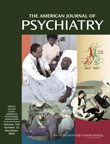Translated Accounts: A Novel
We live in the age of atrocity. Gone are the good wars, the mustering of armies to fight evil, oppression, or the march of invaders into sovereign lands. Now we reap the whirlwind, the dust of Dresden, the ashes of Hiroshima, and we hear the cries of civilians murdered by the thousands and millions to further the psychotic dreams of charismatic tyrants, all in the name of clans, religions, or races.
Too soon we become jaded by the prevalence of abuses. We ignore the erosion of human rights: the right to privacy, the right to self-determination, and the very right to life. Where are the voices speaking out against these crimes? Unfortunately our senses are dulled to the point where even the screams of the dying are ignored. What remains is ART, the universal expression of our humanity, which transcends boundaries and cultural barriers to speak to the esthetic and moral sense that is shared by all humankind.
James Kelman is one such voice. In his Booker Prize-winning novel, How Late It Was, How Late(1), he narrated the struggle of one drunken ex-convict to regain his dignity after being beaten by the police, leaving him blind and indigent. Translated Accounts is more on the scale of our present-day horrors.
The setting of the novel is an unidentified country in unidentified turmoil, with “Securitys” of an unknown state enforcing an arbitrary law. No one is identified by name, not even the protagonists, who may be several or one. No location is identified; only events serve to advance the semblance of a plot. Kelman states, “These are events, I speak of them, if I am to speak then it is these, if I may speak.”
This fragment hints at the structure of the book, which purports to be transcriptions and translations of anonymous speakers from a foreign language by a person or agency not fluent in English. Unlike some of Kelman’s other works, which are written in the Glaswegian dialect and therefore hard to understand, this novel, if you call it that, has no beautiful prose, no magical metaphor, only plain speech. The simple language, however, has a strange word order, as if it were transliterated from German or some other tongue with the verbs in the wrong place. The result has a singsong quality, which reads almost like poetry, amazing in its consistent adherence to a rule unknown to the reader.
This is not an easy book. It challenges the reader to work at understanding and thereby slows us down, making us dwell on the content of terrible crimes. Descriptions of rape, torture, mutilation, and “disappearances” are so remarkably bland that they startle more than graphic or florid descriptions. The Kafkaesque mystery and Beckettesque acceptance make Translated Accounts more compelling than and more unlike the usual modernist stream of consciousness of other modern works.
Let the reader decide if this tour de force succeeds or if it is just another proof of Golding’s claim, “To communicate is our passion and our despair.”
1. Kelman J: How Late It Was, How Late. New York, Random House, 1997Google Scholar



